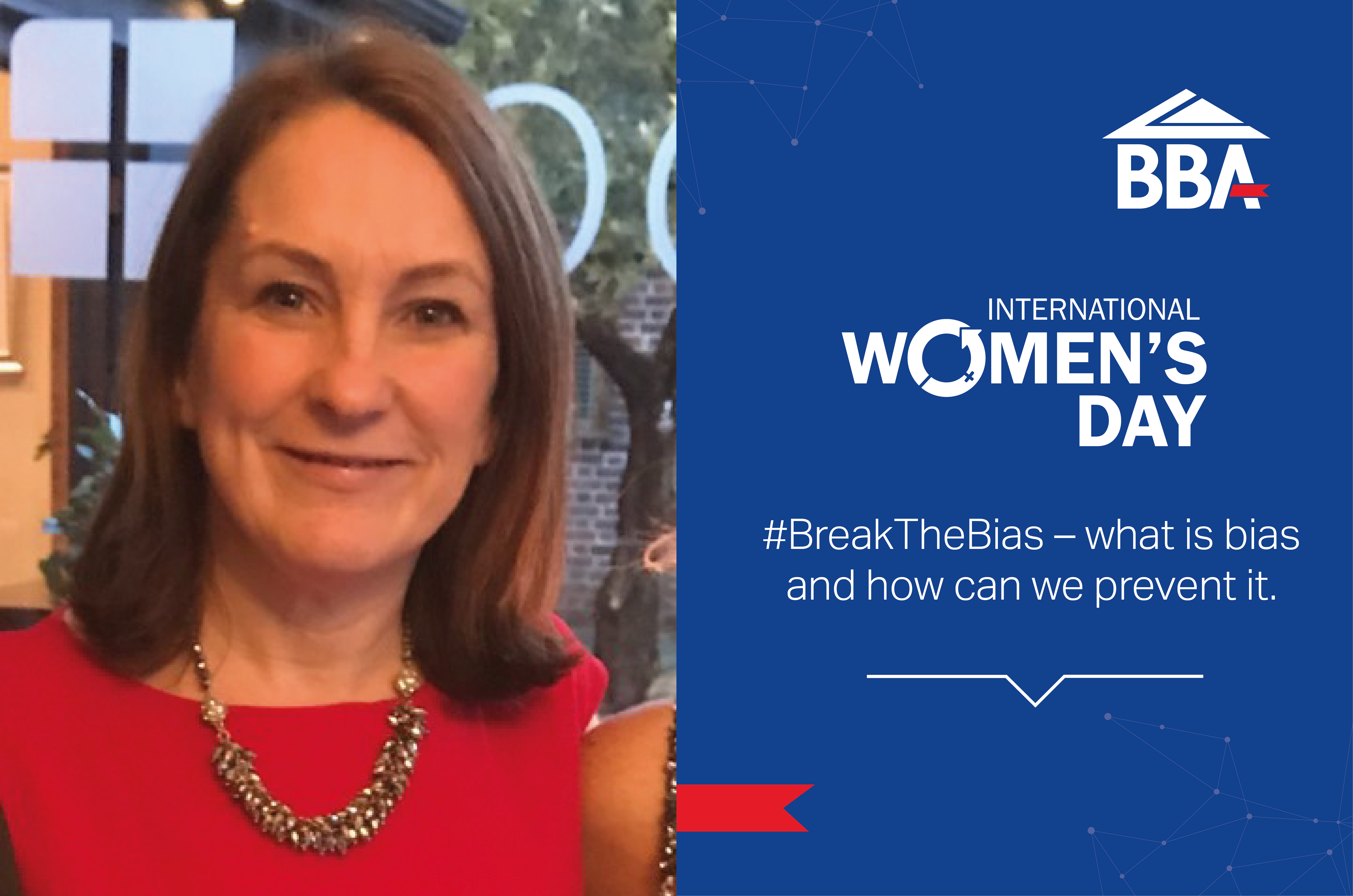The theme of International Women’s Day this year is #BreakTheBias, but how does bias manifest itself in the workplace?
We asked Dawn Dobson, Head of HR at the BBA, to highlight awareness of when and where bias may exist and what can be done about it.

#BreakTheBias focuses on levelling the playing field and promoting equality both in and outside of work.
What is bias in the workplace, particularly in relation to bias against women?
“Bias is making an assumption based on what you think you know about someone, rather than what you know. Bias can attach a positive or a negative attribute. I think we’ve come a long way in assigning certain attributes to women, but old habits die hard, so we do need to think about it and challenge ourselves and others to be better.”
Why is it important we don’t have bias across the business with our people?
“I think most people know the answer to this! We all value fairness and don’t like it if we perceive we’re being treated unfairly. Having a diverse workforce that works in harmony is important to any business in any sector.”
Has awareness of bias increased in recent years?
“Yes, certainly but we need to be vigilant especially around bias built into the system through unhelpful policies and procedures.”
What should someone do if they think there is a case of bias at work?
“The approach I take is to talk to the person involved. A conversation undertaken in good faith with the best intentions has served me well. It’s important also not to become a bystander – sometimes we know that something doesn’t feel right but we can’t put our finger on it. In these instances, go and talk to someone you trust to get their perspective – the bias may be your own!
Our role in HR is to work with you and to help you identify if, when and what action is required. We can act as mediators especially where communication has broken down, but good intent remains on both sides.”
How important is it to keep awareness of bias in the mainstream?
“Awareness is important; however, I think it’s also important to get the balance right with action. I think unconscious bias training which was started with best intentions has been poorly delivered, being divisive rather than uniting.
The best action I believe is creating an open and transparent culture where people feel supported and challenged to do the right thing.”
Share This Story, Choose Your Platform!
Related News
The theme of International Women’s Day this year is #BreakTheBias, but how does bias manifest itself in the workplace?
We asked Dawn Dobson, Head of HR at the BBA, to highlight awareness of when and where bias may exist and what can be done about it.

#BreakTheBias focuses on levelling the playing field and promoting equality both in and outside of work.
What is bias in the workplace, particularly in relation to bias against women?
“Bias is making an assumption based on what you think you know about someone, rather than what you know. Bias can attach a positive or a negative attribute. I think we’ve come a long way in assigning certain attributes to women, but old habits die hard, so we do need to think about it and challenge ourselves and others to be better.”
Why is it important we don’t have bias across the business with our people?
“I think most people know the answer to this! We all value fairness and don’t like it if we perceive we’re being treated unfairly. Having a diverse workforce that works in harmony is important to any business in any sector.”
Has awareness of bias increased in recent years?
“Yes, certainly but we need to be vigilant especially around bias built into the system through unhelpful policies and procedures.”
What should someone do if they think there is a case of bias at work?
“The approach I take is to talk to the person involved. A conversation undertaken in good faith with the best intentions has served me well. It’s important also not to become a bystander – sometimes we know that something doesn’t feel right but we can’t put our finger on it. In these instances, go and talk to someone you trust to get their perspective – the bias may be your own!
Our role in HR is to work with you and to help you identify if, when and what action is required. We can act as mediators especially where communication has broken down, but good intent remains on both sides.”
How important is it to keep awareness of bias in the mainstream?
“Awareness is important; however, I think it’s also important to get the balance right with action. I think unconscious bias training which was started with best intentions has been poorly delivered, being divisive rather than uniting.
The best action I believe is creating an open and transparent culture where people feel supported and challenged to do the right thing.”
Share This Story, Choose Your Platform!
Related News
Get in touch
Please complete the form below and we will contact you as soon as possible.
To help us to respond to your inquiry as quickly as possible, we have put a handy list of our services below.


